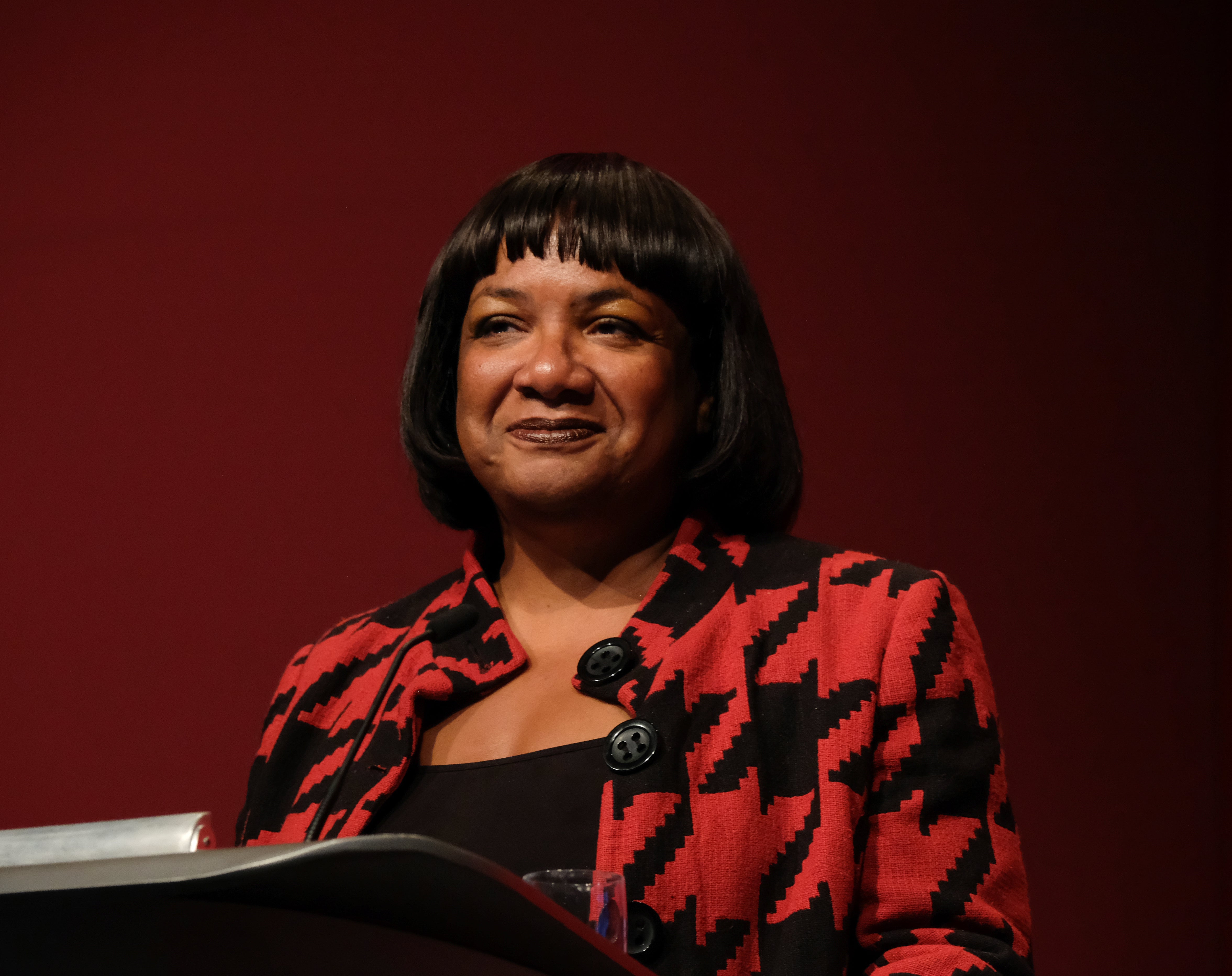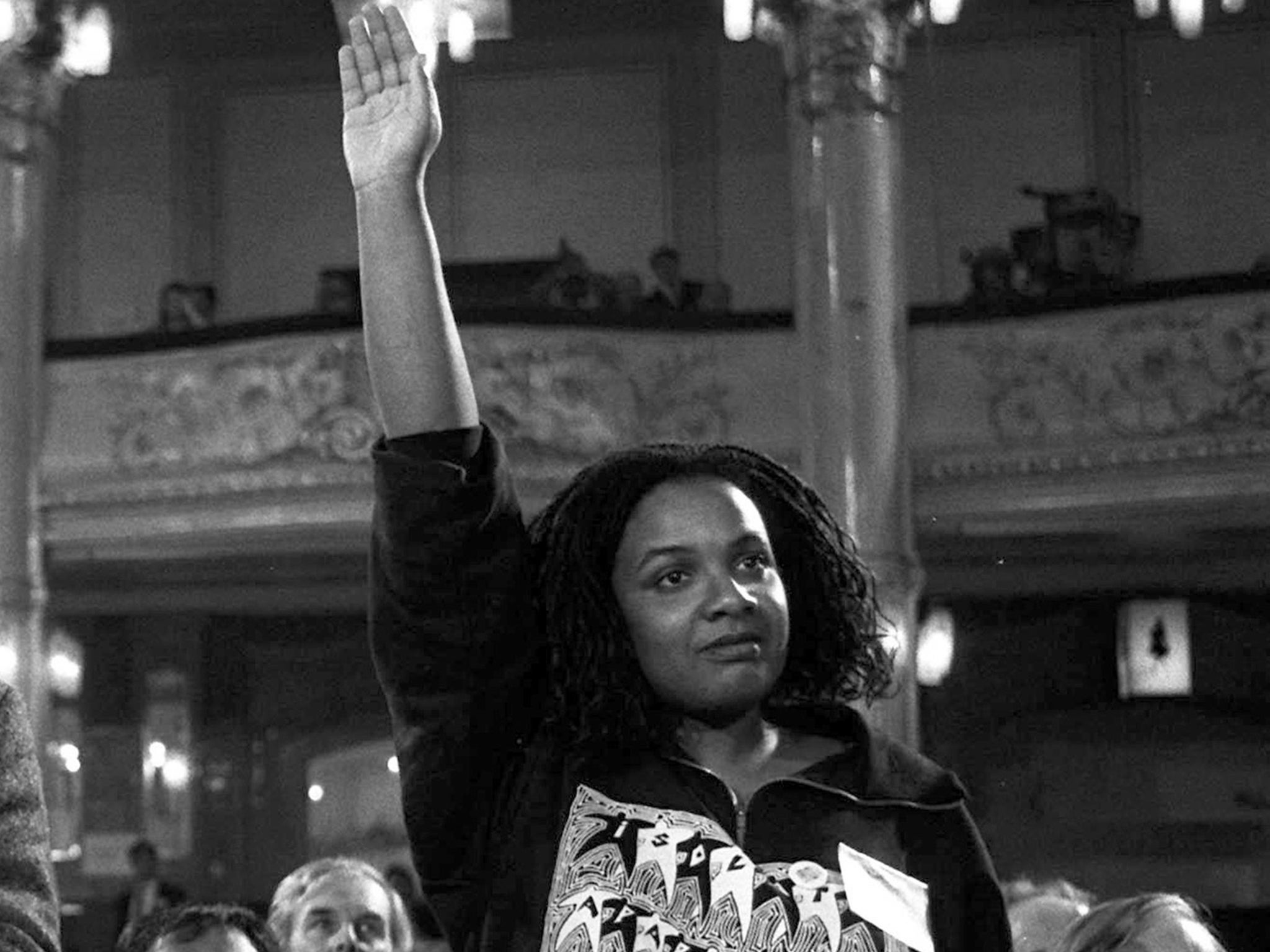I fought to become Britain’s first Black female MP – now my party is taking Black people for granted
Meanwhile, the Tories have seven Black and brown cabinet ministers, and there is not a single white man in one of the great offices of state, writes Diane Abbott MP


Your support helps us to tell the story
From reproductive rights to climate change to Big Tech, The Independent is on the ground when the story is developing. Whether it's investigating the financials of Elon Musk's pro-Trump PAC or producing our latest documentary, 'The A Word', which shines a light on the American women fighting for reproductive rights, we know how important it is to parse out the facts from the messaging.
At such a critical moment in US history, we need reporters on the ground. Your donation allows us to keep sending journalists to speak to both sides of the story.
The Independent is trusted by Americans across the entire political spectrum. And unlike many other quality news outlets, we choose not to lock Americans out of our reporting and analysis with paywalls. We believe quality journalism should be available to everyone, paid for by those who can afford it.
Your support makes all the difference.Racial justice is about struggle and campaigning – but it is also about politics. Individual white activists in the Labour Party, and other progressive parties, have a proud record of fighting shoulder to shoulder with Black people for racial justice.
However, the Labour Party’s history on race is mixed. In the 1950s, the then Labour leader Hugh Gaitskell argued for principled opposition to immigration controls of any kind for British subjects. But successive Labour leaders have treated immigration as a matter of electoral expedience, not moral principle. So in the Sixties and Seventies, Labour followed the Tory lead, making ever-tougher statements and passing ever more draconian laws against immigrants from the “New Commonwealth”.
In 1976, the Commission for Racial Equality was set up by a Labour government. Paul Boateng recalls the early 1980s and the fight against SUS, the precursor of stop and search: “The most obvious issues, which brought things to a head for me were SUS, the Vagrancy Acts, the problems we had with the Labour government who rejected any review of the SUS laws in no uncertain terms.
“The first time that we got a discussion in parliament about these concerns we had support from the Black Labour peer David Pitt and the Liberal Eric Lubbock, but no support at all from Labour, who were in government. The minister for police answered the debate in the Lords, and was actively hostile.”

In 1987, Paul, Bernie Grant, Keith Vaz and myself were elected. We were the first group of Black MPs in parliament. You might think that the Labour Party would have been proud – instead, they were embarrassed. We were associated with the “loony left” and the party was anxious to keep us at arm’s length. Us so-called “loonies” were described in this way because we campaigned on race, equality for women and LGBT+ rights. Nowadays, these issues are mainstream.
Decades later, both major parties were panicked by the rise of the overtly anti-immigrant Ukip. In the run-up to the 2015 election, the then Labour leader Ed Miliband made a series of speeches designed to signal a shift to the right on immigration. This was the period of Labour’s infamous “Immigration Controls” mug, put on sale to supporters.
When I challenged Ed on this rightward shift, he replied sadly: “We’ve got to say these things, to get permission to be heard on anything else.”
After 2015, Jeremy Corbyn was leader of the Labour Party and I was his home secretary. There was a short period of genuinely progressive policy on race and immigration. But among officials in the Labour Party, the dislike of me was intense. WhatsApp messages between them were leaked. Among other things, they messaged each other saying I was “hideous”, “truly repulsive”, “literally makes me sick” and “a very angry woman”.
Nobody involved denies the messages were sent. Their defence was that their messages were meant to be confidential. Martin Forde QC was commissioned by Keir Starmer to produce a report on it all. Forde said: “The criticisms of Diane Abbott … are expressions of visceral disgust drawing (consciously or otherwise) on racist tropes and they bear little resemblance to the criticisms of white male MPs otherwise in the messages.”
It took two years for the party to release the Forde Report and Keir Starmer has never apologised to me personally about the racist abuse.
To keep up to speed with all the latest opinions and comment, sign up to our free weekly Voices Dispatches newsletter by clicking here
So far, Starmer has not made a single speech on the issue of racial equality. Two years ago, he promised a Race Equality Act, but nobody knows what will be in it. Black people don’t want any more abstract aspirations on the subject. We want concrete policies designed to tackle proven institutional racism in areas like health, education and the criminal justice system.
Most recently, Apsana Begum, MP for Poplar and Limehouse in east London, has been treated poorly by the Labour leadership. A dynamic young woman and the first hijab-wearing MP, she has been the victim of harassment, intimidation and an attempt to deselect her. Her difficulties have been caused by the Labour right locally and allies of her ex-husband Ehtashumal Haque, a Tower Hamlets councillor. But the Labour Party nationally will give her no support at all. Apparently, Keir Starmer will not even respond to her letters.
Meanwhile, the Tories have seven Black and brown cabinet ministers, and there is not a single white man in one of the great offices of state. An older generation of Black and brown voters gave the Labour Party undying support. Younger people see it differently.
The Labour Party should stop taking the Black vote for granted and thinking that the answer to institutional racism is to revisit the race relations quangos of the 1970s. Black people are tired of warm words. They want respect and practical action.
Diane Abbott is the Labour MP for Hackney North and Stoke Newington
Join our commenting forum
Join thought-provoking conversations, follow other Independent readers and see their replies
Comments